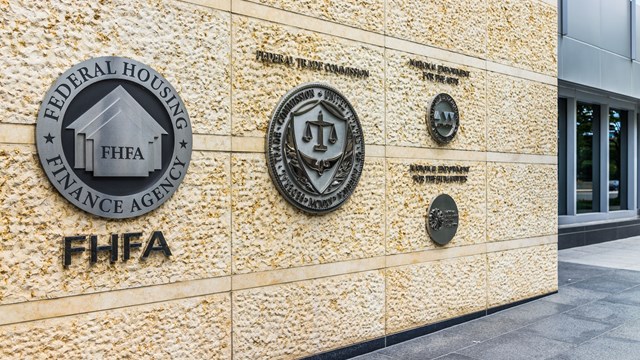Anyone can be a victim of “defamation of character,” whether it’s in the form of slander (a verbal attack) or libel (slander that’s written and distributed). In the rarefied arena of residential communities, emotions can run high when people feel they are defending their turf, and they tend to approach the most mundane issues on a personal level. And the lightning-fast media now available through the Internet has only encouraged the broadcast of everybody’s opinion. Fact-checking and accuracy may have a hard time keeping up.
And accuracy means everything when criticism escalates to court action, since the dissemination of truth or facts is not libelous. The crime is in spreading falsehoods.
“There may be a lot of recklessness that these [electronic] media allow,” states Daniel Polvere, partner in the law firm McCullough, Stievater & Polvere of Charlestown, Massachusetts. In a community association, the management, as well as the trustees and directors, are the most likely victims, he adds. “Typically, it would be a majority of the board taking criticism” since they usually act as a group. “What I have seen,” he continues, “is unit owners putting up their own websites…” with accusations or criticism posted. “Mostly it’s aimed at trustees or directors, and for them, a thick skin is the best response.”
What are the chances of getting sued for slinging allegations about somebody’s bad behavior? Legal experts report that it’s a rare occurrence. The circumstances for a case must be very specific, and certain criteria need to be met. “For instance,” says Polvere, “if someone gets up at a meeting announcing that Mr. X has been embezzling funds [and it’s unsubstantiated], that’s slander, but you—as the victim—would have to show a financial loss to bring a claim. If it was an example of libel, where the allegations are in writing… you don’t have to prove specific damages. The defamation laws use the term ‘publish’ to identify libel, and it means to get the word out… into circulation. Now, ‘publish’ can mean items appearing on the Internet in social media.” The term “publish,” used in the context of defamation law, is not just confined to print—it can mean statements made to the third party.
Then too, there are different rules for public figures. “If you are famous, a public figure, such as celebrity or politician, you’d have to show that the libel [included] an intent to injure,” states Polvere. “Speech in the political arena… would have to be really bad to give rise to court action.”
He notes that when condo residents rant about the directors or management team, “I’m representing the association. Usually it’s an allegation made about a board member… without any content to it. I would tell the victim that ‘you may have a claim, and may want to pursue it on your own. See an attorney about it,’ and it may be as simple as sending a letter.”
When there is an accusation aimed at the board or a single member, and it is patently false, he adds, the board may choose to circulate a statement in order to set the record straight.
Residential communities are not public entities and may limit what most people interpret as “free speech.” The opportunities for residents to vent and hurl insults at trustees and directors may be limited by restrictions in their own condo docs. Polvere notes, “Your docs may include a regulation about posting stuff on the property.” Distributing diatribes by hanging posters, passing out leaflets or knocking on doors may be explicitly prohibited in many communities.
To Respond, or Not to Respond
“It becomes very challenging, what to do when people are criticized… [Today] unit owners can Google and find past problems with management or directors,” says Robert Pacelli, an attorney with the law firm of Zeldes, Needle & Cooper, PC, of Bridgeport, Connecticut. “The question becomes, should victims respond? The first step is to try and have [incriminating pages] removed from the Internet…. It’s hard to deal with because it’s so out there and profuse.”
The Internet is an easy soapbox because “people are less likely to say something [disparaging] in person,” notes Pacelli, except for the “problem” unit owner. “This is the person who shows up at board meetings and has the right to speak” during the [dedicated] open session. Pacelli explains that Connecticut is one of several states that has adopted open meeting laws that apply to community associations, and this may require that time is dedicated, at any board meeting, to discussion by any member present.
Pacelli emphasizes the importance of dealing with criticism—or slander—in the proper environment. “It’s prudent, on the part of a director or trustee, to act in the proper manner in the appropriate forum,” he notes, whether that means an open session, board meeting or executive session. “The best response to a heated attack… may be to walk out and say nothing.” He agrees with Polvere that it may be necessary sometimes to set the record straight. “It may be appropriate to respond—again, in the proper forum, to make a correction, if there is a false accusation.”
Check Docs for Grievance Procedures
Attorney Clive Martin from the Boston law firm of Robinson & Cole, LLP, points out that, “A condo association is like a small-scale democracy and everybody can be heard.”
When complaints are lodged, options for proper action can vary. He states, “Context is everything, whether the criticism is aimed at an individual or a whole board, and depending on who is [doing the] complaining.” For instance, he notes, a negative position paper can backfire, and the proponent who is lodging complaints and criticisms be seen as the villain, in an example of “blaming the messenger.”
It’s also important to remember that critical language is only libelous if it’s false. “Truth is the best defense,” says Martin, adding, “But before you circulate a charge, speak to a lawyer.”
What about unit owners who want to rally support and circulate petitions that might be libelous? Martin points out that almost all condo docs [Rules & Regulations] include procedures for dealing with grievances. Any issues or complaints from residents are usually addressed in the context of a meeting, and the docs should allow the scheduling of a “special meeting” when circumstances warrant it. When there are accusations aimed at management or the trustees, Martin says, “the first place to start, for any question or issue, is the condo docs.”
He points out that residents within their own residential community cannot assume they have the same rights to free speech that they might employ on the outside. Just as Polvere noted, in a community association, “You are in a different world, subject to its own rules,” states Martin. “You may not be allowed to rally,” or solicit your neighbors by distributing materials or posting notices in common areas. “It’s a private [domain], under a different scrutiny,” he continues.
The need to rally support with posters and brochures may already be a moot point with the evolution of the Internet. Angry residents have no trouble venting on websites, blogs and a wide choice of social media. On the other hand, many community associations maintain websites with a consistent public relations spin—for communicating with unit owners or as a marketing tool for the property. Martin notes that a community’s website should be constantly scrutinized. “If it is an official home page, sponsored by the directors or trustees, you had better be careful… you have to monitor it closely. If it’s not an official site, the home page should plainly state that the information posted within does not reflect the opinions of the board [or trustees].”
Act Fast, Move On
The bottom line, when dealing with potential libel, might be summed up by Attorney Jon Levenstein of Bedford, New Hampshire, who recommends, “Mediate quickly and move on.”
Even with solid evidence and a strong chance of winning a suit, he adds, “you won’t see it in court for [several] years, they’re so backed up.” Mediation may seem difficult when a person feels victimized by slander or libel, but, he states, “moving out or selling your place may not be an ideal option.”
Legal experts agree that pursuing a case is likely to be counter-productive. Because any damage awards are relatively small, most lawyers will not take the case on a contingency basis and the victim has to pay out of pocket, up front, and any award may not cover those fees. In addition, a case that actually reaches court will probably be noticed by a local newspaper, and from there it could escalate and get broadcast by all kinds of news media. The negative aspects of the case, whether they are true or false, will probably define the story, and people may never learn about the trial’s outcome, or if the plaintiff wins or loses. Even worse, you can lose the case—for lack of enough evidence—and still be right.
Since slander or libel, notes Martin, “is a hard thing to prove, it’s better to go with some sort of mediation [and] nip it in the bud.”
Marie Auger is a freelance writer and a frequent contributor to New England Condominium.







Leave a Comment